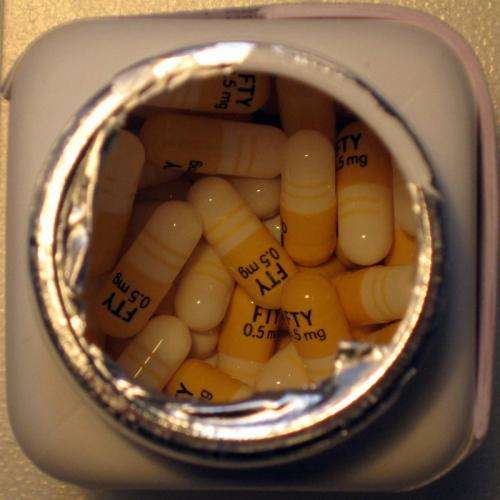Researchers still pushing for better multiple sclerosis treatments

Two new oral treatments have become available for people with multiple sclerosis, helping to delay the progression of disability and reduce the frequency of relapse.
Diethyl fumarate, known as Tecfidera (and BG-12 in clinical trials), and teriflunomide, known as Aubagio, recently joined fingolimod (Gilenya) as oral treatments on the Pharmaceutical Benefits Scheme.
WA was involved in some clinical trials for the treatments and a patient familiarisation program and continues to monitor people on the medications through best clinical practice.
St John of God Subiaco Hospital clinical professor and consultant neurologist Allan Kermode manages a research team investigating causes of MS and says the development and testing of oral treatments has been an expensive, slow and painstaking process.
Before 1996, there were no therapies to slow MS and the ones that followed required people to inject themselves.
"Fingolimod was originally considered as a medication for organ transplants but it was found not to be very useful in that context," Professor Kermode says.
"Teriflunomide is a derivative of a drug commonly used for arthritis while dimethyl fumarate was a chance discovery because fumarate in the compound form had been used to treat psoriasis.
"The holy grail of these treatments is to reduce clinical progression of disability and the second benefit is a reduction in the relapse rate.
"These drugs all reduce the frequency and severity of attack for patients with MS—in the case of dimethyl fumarate, clinical trials have suggested an 85 per cent reduction in the number of new inflammatory lesions.
"We would like to think that reduction in inflammation also facilitates recovery from attack."
Prof Kermode says the therapies are believed to have a beneficial effect in MS via the immune system but other mechanisms of action are also possible.
"You might say how can we select a drug when we don't really have any idea of how it works? But it's not that surprising when you consider we don't have any idea what causes MS," he says.
"The end points of therapy are also somewhat imprecise. If you're using a cancer treatment, you count how many people die. If you're testing an anti-hypertensive you measure the blood pressure.
"We don't really have any good target markers for MS because there are a number of different factors involved and this is due in no small part to the heterogeneity and variability of MS itself."
Currently, Prof Kermode is collecting blood from patients in an effort to pinpoint biomarkers, looking at RNA expression, and working as part of an Australian collaborative study to isolate pharmacotherapeutic biomarkers.
The two new treatments, diethyl fumarate known as Tecfidera, and teriflunomide known as Aubagio, were added to the Pharmaceutical Benefits Scheme in December 2013.














